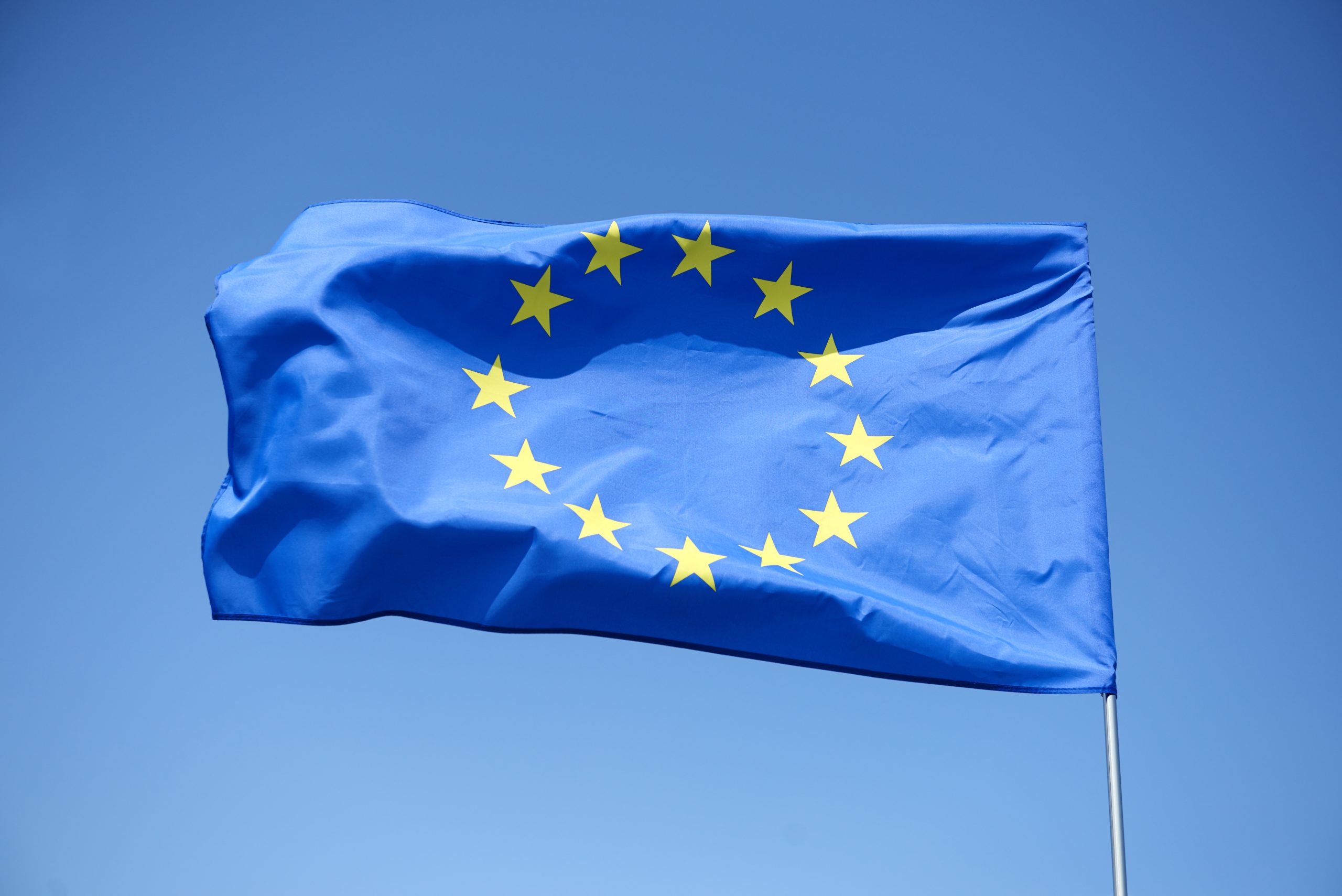Poland has taken over presidency of the EU Council. Donald Tusk’s approach to Europe could not be less aligned with his predecessor, Viktor Orban; the new ideological struggle playing out in central Europe may define the continent’s future.
As Austrian diplomats Emil Brix and Erhard Busek wrote in Central Europe Revisited, “the future of Europe depends on central Europe.” They point out that the European Union must take into account “central European traditions and initiatives, and not just Brussels, Paris or Berlin as it is now.” If the EU continues to develop only around its Carolingian core, they say, this will end the European “peace and prosperity project.”
The war in Ukraine proved Brix and Busek right. But that Europe’s future is now indeed being decided in its centre is also due to the EU’s fate being at the mercy of a fundamental political dispute.
On 1 January 2025, Hungary, under president Viktor Orban, handed over presidency of the Council of the EU to Poland and its prime minister, Donald Tusk. Both leaders are already clashing, with Europe as their political battleground—Orban and Tusk best symbolise the competing values, interests and approaches at the centre of the conflict for the continent’s soul. But with Poland taking over the council presidency, the battle is gaining new momentum.
Competing visions
Tusk is famous for his adherence to former German chancellor Helmut Schmidt’s maxim: “He who has visions should go to the doctor.” Orban, on the other hand, is a notorious critic and would-be destructor of the EU. Yet the original ideas behind Europe—those of Jacques Delors or Joschka Fischer—have long become untenable, obscured by years of never-ending crises. French president Emmanuel Macron, the last bastion of ambitious plans for Europe, is bogged down in a political crisis with no end in sight. Germany, too, is a risk of becoming more insular due to internal strife and the possibility of its likely next government being less willing to take such a central role in Europe.
This ideological disparity means describing Tusk and Orban as visionaries of integration may come as a surprise; but central Europe’s time has arrived.
However, the cliched thesis that the EU’s centre of gravity is shifting eastward due to a shift in global power structures smacks of central European megalomania: Mitteleuropa does not in fact hold the EU’s reins. Rather, the return of Mitteleuropa as symbolised by the rivalry between Tusk and Orban is mainly due to the existential nature of the crises unfolding in this part of the continent. Both politicians are key actors: the two contentious issues are the fight to retain democracy in the EU and how to approach the war in Ukraine.
Defending liberal democracy
The visionaries of European integration—Delores and Fischer, but also Helmut Kohl and François Mitterrand—formulated their projects at time of ‘permissive consensus’ and with a belief in the EU’s unquestionable liberal-democratic foundation.
Today, both assumptions are outdated: the current fragility of the democratic order is the key central European lesson of recent years, and it radiates across the EU. “Defending our liberal democracies is our first, second and third duty,” said Tusk in 2018. This remains his main argument: if pro-democracy parties do not better address citizens’ fears that migration, the green transition, or globalisation will disrupt life as they know it, they hand power to the enemies of both democracy and the EU.
As such, Tusk’s pragmatic approach to the EU means, among other things, clarifying that the bloc is not an end in itself. Its policies and decisions must not obscure its fundamental goal of defending the democratic order, without which it also cannot survive. His embrace of tough language on migration, including the possibility of a temporary suspension of the right of asylum, is an example of this approach.
While Tusk wants an EU which defends liberal democracy, Orban is using the bloc to build an autocratic model of government: “For a long time I have not seen such a good opportunity for national, conservative, sovereign and Christian forces to become dominant in the European Union,” he said in March 2024. While the 2024 European Parliament election outcome did not quite fulfill Orban’s hopes, Donald Trump’s reelection will strengthen the far right in Europe. Orban is already positioning himself as America’s main interlocutor on the continent.
Orban’s next move
Orban’s slogans of sovereigntism and conservatism underpin a vision of the EU that is opposed to Tusk, and his axioms of democracy and unity. The Hungarian leader wants a bloc that would give similar autocrats a free hand in shaping their countries’ internal order, as well as their relations with the outside world.
And Orban is betting on an ‘a la carte Europe’. He makes no secret of the fact that he is aiming for a comprehensive overhaul of the EU, declaring that “Hungary is not a member of the EU because of what it is, but because of what it could be.”
Prior to this, at a speech in Baile Tusnad in July, Orban described the union of his dreams. It is no coincidence that Poland was the target of his criticism: it is an entity that, together with London, Kyiv, and the Scandinavian states, has supposedly created a new centre of power in Europe to replace the Berlin-Paris axis. Orban believes that the West has ended as a community of values and as a political model, and that the inevitable rise of Asian economic power makes China or Turkey—he spoke admiringly of Russia’s “resilience”—both role models and indispensable diplomatic partners.
On the other hand, although Orban portrays himself as Trump’s best friend, his plan for rapprochement with China and Russia (including at the expense of Ukraine) is an offer to Europeans for an era without, or with less, America. Throughout the post-war period, the United States supported European unification—both practically and ideologically. In its absence, Orban and his acolytes will strive to reshape the EU to their own ends.
Staying alive
Tusk must therefore not only protect the EU’s unity but, more importantly, prevent the derailing of its core values and mission. At stake now is not whether the EU remains united at any price; but whether it will survive at all. It is no longer a question of promoting European values, but of defending democracy and the rule of law against threats such as those witnessed in recent elections in Georgia, Moldova, and Romania.
In Ukraine, the future of Europe’s security is being decided; the approaches of Orban and Tusk collide like tectonic plates. “Security, Europe!” is the motto of the Polish presidency of the council of the EU, in which support for Ukraine is central. Tusk wants to strengthen EU defence by setting up a new fund which finances common procurement and long-term military aid for Kyiv.
Meanwhile, Hungary is even blocking reimbursements from the European Peace Facility, a tiny EU fund used to facilitate military aid for Ukraine. While Tusk is talking about a “pre-war era” and warning against Russian aggression, Orban believes that confronting Russia is “harmful and doomed to fail.” He hopes to help strike a deal with Moscow at the expense of Ukraine’s sovereignty and Europe’s security. And his pilgrimage to Russian president Vladimir Putin has found support, not least in central Europe: Slovak leader Robert Fico and the likely Austrian chancellor-to-be Herbert Kickl are ready to follow suit—and to defy Tusk’s very different message.
Spirit of the times
The hopes placed in Tusk today may seem overwhelming, for him and for Poland. Tusk formed his approach to Europe amid numerous crises (financial, migration and Brexit) which shifted his focus to being pragmatic in the present, rather than developing far-reaching strategies. In turn, the priority of fighting for democracy means he is cautious about EU projects and the primacy of tactics over ambition. This stance captures the spirit of the times well; but it may not be enough in the battle that awaits the EU under Trump.
On the other hand, Tusk’s recent initiatives on joint funding for European defence, as well as the diplomatic offensive to coordinate EU policy toward the US and Ukraine, give hope that he will overcome his inhibitions. Several times European history has been decided in central Europe. But since 1989 it is the first time that the region itself can significantly influence its course. Either the Tusk era or the Orban era awaits—there is no other way in sight.
About the author:
Piotr Buras is the head of ECFR’s Warsaw office and a senior policy fellow at the European Council on Foreign Relations. His topics of focus include Germany’s EU and foreign policy, Poland in the EU, and EU politics.


